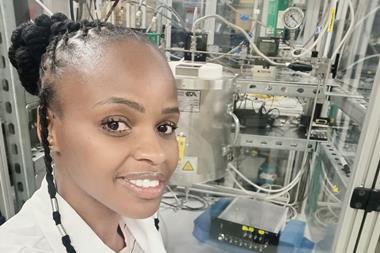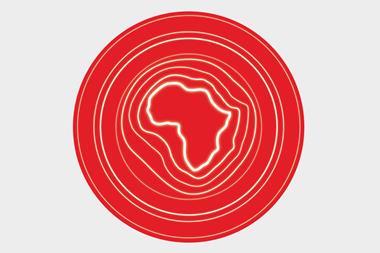A plan to set up centres of excellence for genomics across Africa aims to transform access to cutting-edge technologies on the continent. The centres could help to reshape the response to some of the continent’s most pressing health challenges.
Africa tops many lists for disease burden, yet genomics has had little impact on healthcare in African nations. A lot of the genetic and genomic studies that have been done to understand disease aetiology have also been done in non-African populations, potentially making the data less relevant for people there.
The preliminary plan for the centres was presented at the 14th International Congress of Human Genetics in Cape Town, South Africa in February. African leaders in genomics, including Nicola Mulder at the University of Cape Town, Charles Rotimi, scientific director of the National Human Genome Research Institute, and Ambrose Wonkam, a medical geneticist at Johns Hopkins are among those championing the plan.
Mulder, head of the Pan-African Bioinformatic Network, Human Heredity and Health in Africa (H3Africa) initiative, which is coming to an end after 10 years, said there’s a lot of inequality in terms of the ability to apply genomics to healthcare. She adds, however, that Covid-19 showed a fantastic genomics-based response to the pandemic in Africa, so the time is ripe to build on this momentum and address past inequalities. ‘The vision for this genomic centre of excellence in Africa is to create a network of centres that are coordinated, working together to address the burden of disease and improving the health and wellbeing of African populations,’ she said.
The centres will target pathogen surveillance, implementation of precision public health and workforce training and development. The programme is forecast to cost $200 million (£165 million) and will begin with two pilot centres that will cost $2 million per centre per year, excluding staffing. H3Africa is appealing for funding agencies to back the initiative and is looking to engage multiple partners globally, including African governments, philanthropic bodies, private companies and African institutions such as the African Development Bank.
Mulder said the foundational phase will entail building up the coordinating centres that will help to develop the standards for data collection and all the guidelines. They will start with two to three centres that can show proof of principle.
The plans call for the network of genomic centres to be closely linked to universities and the public health sector. These centres will perform screening for sickle cell disease in newborns, diagnose rare diseases, tackle the burden of sickle cell where there is a 50–90% mortality rate in African children and work on gene-based treatments. A co-ordination centre will be located in the African Union’s Africa Centres for Disease Control, headquartered in Addis Ababa, Ethiopia.
Building datasets for the continent
There would be an open call to all African countries to apply to host a centre, said Rotimi, board member of the African Society of Human Genetics. The centres are expected to co-create foundational genomic and clinical datasets in Africa and build links with local government, such as partnerships for clinical studies, and establish biobanks with standardised data and sample collection and quality control.
Naledi Pandor, South Africa’s minister of international relations and former science minister, called for greater scientific collaboration between Africa and the global community. ‘We believe that through international science and collaboration, we will work at building a better world [for] sharing knowledge for the improvement of the quality of life experience of humanity,’ she said.
‘I hope to see a remarkable story of increasing genomics capability across many countries in Africa,’ said Francis Collins, former director of the US National Institutes of Health, speaking at the conference. Collins said the concept of African genomic centres of excellence builds upon what’s already been put forward by the H3Africa hub. ‘We want to see … even more strong centres that are led by Africans designed for sustainability of genomics, rather than sponsorship of individual projects that come and go.’
‘Centres of excellence converts an initiative from a project to become [an] operational model – it becomes sustainable for many years to come,’ says John Farirai, senior medical officer, Botswana-Baylor Children’s Clinical Centre of Excellence. ‘We have now all these well trained scientists, recognised across the world and they have become mentors, if we don’t use them we will lose them.’
Anna Schuh, director of molecular diagnostics at the University of Oxford, thinks a network of genomic centres of excellence is the right way forward. ‘You need to get the price down and scale to make sense of the data. You can’t have fragmented people working in different countries in different labs,’ Schuh told Chemistry World.
Schuh said the proposed network is a huge, valuable resource for research, and also very valuable for diagnostics. She notes that for emerging and rare diseases, as well as cancer, ’lots of new therapies are available nowadays. But in many parts of the world, these therapies are given out without molecular testing, which means that you’re giving hugely expensive drugs to people where those drugs don’t work because they haven’t been tested,’ she said. ‘The real value of the[se] database[s] will come by linking it with diagnostics.’












No comments yet